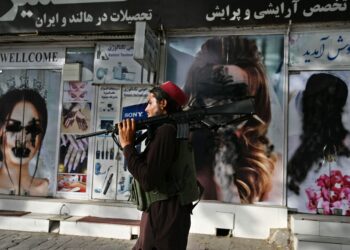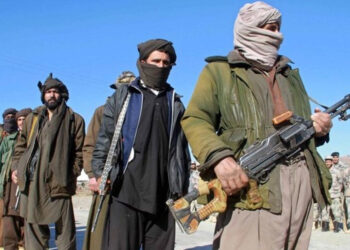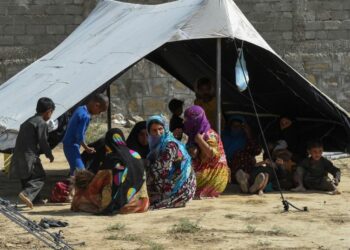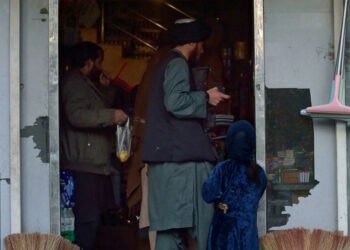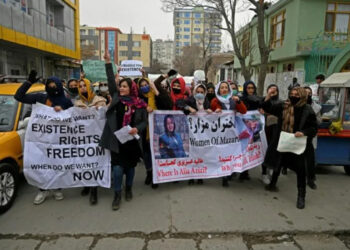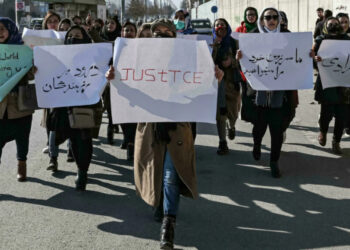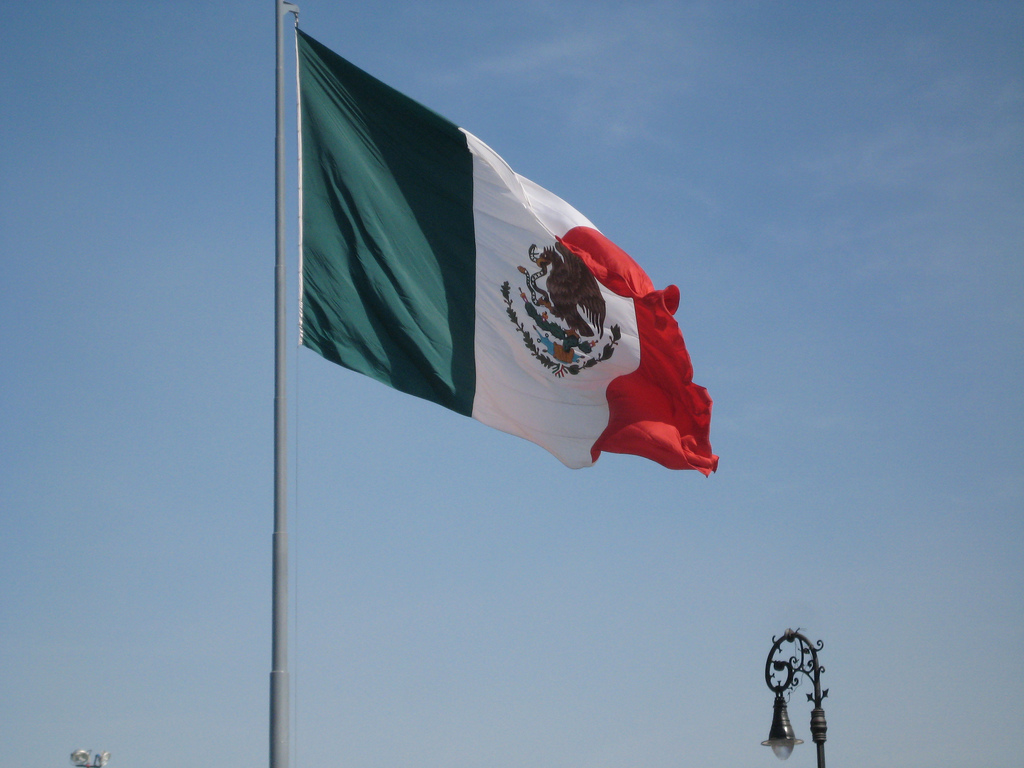Identity politics is seemingly pushing volatile Afghanistan toward another political deadlock, and this is happening at a critical stage when the country is under threat from waves of suicide attacks, unprecedented civilian casualties, loss of armed forces, the Taliban offenses on major cities, extreme poverty, and political illegitimacy.
This political standoff is recent, albeit historic in essence. It is about the word “Afghan” meaning the state identity versus tribal identities in ethnically heterogeneous Afghanistan, which is still confused whether it is a “nation-state” or a “state-nation.”
Over the past decades, political scientists have developed the concept of “state-nation” in contrast to the historical Westphalian notion of “nation-state.” Needless to say, these concepts aim at indulging nationalism, particularly the essence of identity in a sovereign country. A nation-state is believed to have an undisputed national identity reflective of its egalitarian constitution, political system, and more importantly the “we feeling” of its citizens who are generally associated with “one civilization.” In this form of state, the goal “is unity in oneness.”
On the other hand, in a “state-nation,” citizens are “attached to more than one” civilization or culture. They have multiple “complimentary identities” and yet “feel obedience to the state and identification to its institutions,” however, not to a single identity, particularly when it is imposed.
This type of ethnically heterogeneous “state-nation” is organized around a decentralized political system that protects and respects multiculturalism, while granting all ethnic groups political and cultural autonomy to coexist and voluntarily develop the “we feeling” as citizens of one country. The goal in such a country “is unity in diversity.”
Where Does Afghanistan Fall?
Afghanistan is home to a large number of ethnic groups, but its four principal tribes are Pashtuns, Tajiks, Hazaras, and Uzbeks. There has never been an independent census of population to determine the actual size of each tribe. Nonetheless, King Ahmad Shah Durrani, an ethnic Pashtun, is credited for the creation of Afghanistan as a state in 1747, albeit an ever-lasting debate remains open whether he actually gave the name or not.
Between 1747 and 1992, Pashtun rulers had governed the territory now known as Afghanistan. The only exception was King Habibullah Kalakani’s short reign in 1929. He was a ruler of ethnic Tajik origin who was betrayed and hanged by perpetrators. Thus, throughout Afghanistan’s nearly three hundred years history, Pashtuns have monopolized state power to rule over other tribes.
“The Pashtuns established the Afghan state in 1747, and despite the country’s ethnic heterogeneity, maintained their dominance until 1992,” Anwar-ul-Haq Ahady wrote in an academic article The Decline of the Pashtuns in Afghanistan, when he was an Associate Professor of Political Science in 1995 and on his way to become the leader of Afghan Millat (Nation) Political Party, established on the basis of ethno-nationalism to push for Pashtunization of Afghanistan.
He went on to elaborate how Pashtuns attempted to sustain their “dominance” in a multi-ethnic country: “ . . . the resettlement of the Pashtuns in the north and the pacification of Hazarajat firmly established Pashtun dominance throughout Afghanistan.” Sadly, he calls this process of tribal supremacy and ethnic cleansing “serious efforts to build a nation-state.”
Is Afghanistan a Nation-State?
Only Pashtun leaders seem to consider Afghanistan a “nation-state,” given Ahady’s claim. They believe that Afghanistan is the only Pashtun country surrounded by other regional nation-states, namely Iran, Uzbekistan, Tajikistan and Turkmenistan. Other ethnic groups residing in the “Afghan” land should respect its “Afghan character” in the same way as the Persian, Uzbek and Tajik characters of the neighboring countries are respected.
President Ashraf Ghani’s recent move to nationalize the word “Afghan” in new domestic electronic citizen ID cards has further complicated ethnic groups’ relations with the “Afghan” state. The document identifies its holders as Afghans, the term used as a synonym for members of the Pashtun tribe at home.
His move intends to force Afghanistan toward a paradoxical “nation-state,” the foundation of which was laid in 2004 when an absolute presidential system was mysteriously envisioned in the Constitution of Afghanistan.
“The new Constitution was finally adopted on January 4, 2004. Rather than holding a vote, delegates were simply asked to stand for one minute to denote their accession to the document. Without a formal count or recording of dissenting votes, opposition was muted.” These are the words of an international constitutional expert Alexander Thier, who seems to have been involved in the process of making the current Constitution of Afghanistan. He referred to the Grand Council of 2004 and the “muted” opposition, who were non-Pashtun ethnic representatives.
All Ethnic Groups’ State-Nation
Given that Afghanistan is home to multi-ethnic groups none of which constitutes an absolute majority, it is undeniably an ethnically heterogeneous country that perfectly qualifies as a “state-nation.” In fact, President Ghani’s complete name prior to his grip on power sounded like Mohammad Ashraf Ghani Ahmadzai.
Ahmadzai, like Karzai, belongs to a clan of the Pashtun tribe. Surprisingly, he dropped his last name through a presidential decree to appease all ethnic groups in Afghanistan and present himself as everyone’s leader, not a Pashtun tribal leader, although his conduct portrays him as the latter. His Pashtun supporters also call him “baba,” a term that means “father” of all Pashtun tribe in the Pashtu language.
If his act genuinely validates anything, it is Afghanistan’s status as a state-nation that does not need the first or last name indicating a single tribe. Its national identity must compliment all ethnic groups’ identities so that a real sense of “we feeling” is created.
In reaction to Ghani’s move, northern non-Pashtun populations have held demonstrations to not only defy Ghani’s distribution of “Afghan” e-IDs but also to call for the change of the country’s name from Afghanistan to Khurasan. This does not sound like “we feeling” in the making.
Deep down, Western-educated Pashtun leaders know that Afghanistan is a state-nation, not a nation-state. If they were convinced that Pashtuns were the majority, they would not have engaged in a conspiracy to conduct a census of the population from “space”.
Ethnic diversity of Afghanistan is so great that previous despotic rulers had failed to establish a Pashtun nation-state. The paradoxical aspiration to achieve the “Greater Pashtunistan” that would bring together Pashtuns of Pakistan and Afghanistan seems to have taken reason away from them. Ghani’s open support to “PashtunLongMarch” in Pakistan steams from this absurd ambition.
Overthrowing of the de facto Taliban regime in 2001 with the support of the international community handed Afghanistan a historic chance to embrace true democracy as a “state-nation.” It could have begun a new chapter for all ethnic groups of Afghanistan allowing them to coexist harmoniously as citizens without any state favoritism or discrimination. This could have become reality with a decentralized political system, like any other state-nations have, on the basis of a legitimate egalitarian Constitution.
Some demagogic leaders, intentionally or unintentionally, did not take this chance to move forward. Instead, they chose a path that is taking Afghanistan backward to its dark tribal past. For the sake of our “unity in diversity,” we have to abandon ethnonationalism if we are to get another chance to move forward together as a real state-nation rather than undermining one another in a false nation-state destined to collapse.
Disclaimer: The views and opinions expressed here are those of the author and do not necessarily reflect the editorial position of The Globe Post.


